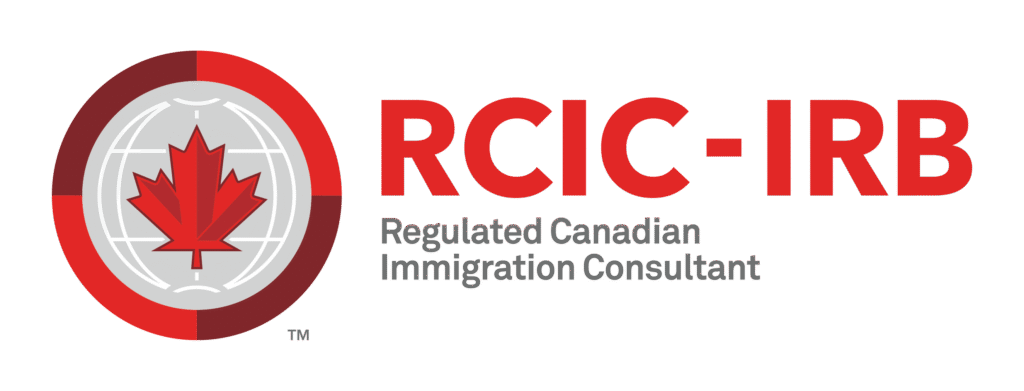Cost of living in Canada

Canada is one of the most favored countries for migrants around the world due to its high quality of life, advanced facilities, and economy. Before moving to this country, there’s a lot to consider, but the first thing you should focus on more than anything else is knowing the cost of living in Canada.
So, before migrating to Canada, make sure you factor in the cost of living in your calculations. To get detailed expenses on living in Canada as of the 2024 update, we recommend reading this article.
What is the cost of living?
The cost of living is the amount of money needed to cover basic living expenses such as housing, food, public transportation, childcare, healthcare, and taxes in a specific location and time frame. Besides these, there are other necessities that count as additional costs, including clothing expenses, internet and phone bills, gym memberships, entertainment, and more.
The cost of living in Canada varies depending on individuals’ lifestyles and locations.
Cost of living in Canada 2024
In this section, based on data from the Numbeo website for the year 2024, the average cost of living in Canada is presented based on factors like housing, food, transportation, childcare, clothing, and sports and entertainment.
Note: Here, the average refers to the midpoint between the lowest and highest living expenses. Therefore, in different areas of Canada, the cost can be lower or higher than the average amounts.
Housing costs in Canada
The average rent for an apartment and home buying across Canada is as follows:
| Item | Average price in Canadian dollars |
|---|---|
| Average cost of a 1-bedroom apartment in the city center | $1981.86 |
| Cost of a 1-bedroom apartment outside the city center | $1802.42 |
| Cost of a 3-bedroom apartment in the city center | $3160.27 |
| Cost of a 3-bedroom apartment outside the city center | $2649.29 |
| Price per square meter to buy an apartment in the city center | $12201.34 |
| Price per square meter to buy an apartment outside the city center | $8870.18 |
Utilities
| Item | Cost in Canadian Dollars |
|---|---|
Electricity & water & heating – cooling & sewage for an 85 square meter apartment | $215.87 |
| Monthly mobile plan with call and 10GB of internet | $65.95 |
| Internet (60 Mbps or higher – unlimited data – cable/ADSL) | $87.39 |
Restaurant costs in Canada
| Item | Average Price in Canadian Dollars |
|---|---|
| Meal for one at a cheap restaurant | $24 |
| Meal for two at a mid-range restaurant | $100 |
| Cappuccino | $5 |
| A soda | $2.88 |
| Small bottle of water | $2.34 |
Food costs in Canada
| Item | Average Price in Canadian Dollars |
|---|---|
| Milk (one liter) | $2.88 |
| Bread (500 grams) | $3.51 |
| White rice (one kilogram) | $5.11 |
| Chicken fillet (one kilogram) | $16.43 |
| Eggs (12 count) | $4.62 |
| Local cheese (one kilogram) | $15.28 |
| Bananas (one kilogram) | $1.91 |
| Apples (one kilogram) | $5.66 |
| Oranges (one kilogram) | $5.09 |
| Lettuce (one medium head) | $3.60 |
| Onions (one kilogram) | $3.48 |
| Potatoes (one kilogram) | $3.52 |
| Tomatoes (one kilogram) | $5.54 |
| Water (1.5-liter bottle) | $2.37 |
Transportation costs
| Item | Average Price (Canadian Dollars) |
|---|---|
| Single trip ticket | $3.35 |
| Monthly travel card | $104.90 |
| Taxi fare | $4.50 |
| Taxi fare per kilometer | $2.09 |
| Hourly taxi wait charge (stopped or in traffic) | $39 |
| One liter of gas | $1.59 |
Clothing costs
| Item | Average Price in Canadian Dollars |
|---|---|
| One pair of jeans | $82.02 |
| One summer dress from a chain store | $57.76 |
| One pair of Nike sneakers | $120.03 |
| One pair of men's leather shoes | $157.69 |
Sports and entertainment costs
| Item | Average Price in Canadian Dollars |
|---|---|
| Monthly gym membership for an adult | $59.02 |
| Cost for one hour of tennis court rental on weekends | $27.64 |
| Movie ticket one seat | $15 |
Childcare costs
| Item | Average Price in Canadian Dollars |
|---|---|
| Private preschool or kindergarten full day / monthly cost for one child | $1116.72 |
| International primary school / annual cost for one child | $19896.06 |
Salary and wages
The average net monthly salary after tax is $3,881.82.
Average cost of living in Canada
The average cost of living in Canada for a single person and a family of four per month in 2024 is as follows:
Single person
Average cost of living in Canada excluding rent: CAD 1,441
Average cost of living in Canada including rent for a 1-bedroom apartment outside the city center: CAD 3,231
Family of 4
Average cost of living in Canada excluding rent: CAD 5,164
Average cost of living in Canada including rent for a 3-bedroom apartment outside the city center: CAD 7,813
Monthly living expenses in Canada
In this section, we’ll take a look at the monthly living expenses in Canada for the year 2024. The costs are categorized based on a single person and a family of four living in different cities in Canada. All costs are in Canadian dollars.
Cost of living for one single person in Canada
| City | Province | Cost of living per month in Canada excluding rent | Cost of monthly rent in Canada (1-bedroom apartment outside the city center) | Total monthly living cost in Canada with rent |
|---|---|---|---|---|
| Toronto | Ontario | 1542.6 | 2302.68 | 2909.1 |
| Vancouver | British Columbia | 1586.2 | 2841.28 | 4427.48 |
| Halifax | Nova Scotia | 1467.0 | 1673.08 | 3140.08 |
| Calgary | Alberta | 1609.0 | 1869.25 | 3478.25 |
| Saskatoon | Saskatchewan | 1479.3 | 1228.33 | 2707.63 |
| Winnipeg | Manitoba | 1376.1 | 1444.48 | 2820.58 |
| Charlottetown | Prince Edward Island | 2256.0 | 900.00 | 3156.00 |
| Moncton | New Brunswick | 2253.0 | 1050.00 | 3303.00 |
| Montreal | Quebec | 1354.6 | 1289.15 | 2643.75 |
| St. John's | Newfoundland and Labrador | 1263.02 | 1200.00 | 2463.02 |
Cost of living for a family of four in Canada
| City | Province | Cost of living per month in Canada excluding rent | Cost of monthly rent in Canada (3-bedroom apartment outside the city center) | Total monthly living cost in Canada with rent |
|---|---|---|---|---|
| Toronto | Ontario | 5583.00 | 3661.36 | 9244.36 |
| Vancouver | British Columbia | 5883.0 | 3661.36 | 9544.36 |
| Halifax | Nova Scotia | 5165.8 | 2681.76 | 7846.84 |
| Calgary | Alberta | 5636.1 | 2422.50 | 8058.60 |
| Saskatoon | Saskatchewan | 5193.3 | 1866.67 | 6959.97 |
| Winnipeg | Manitoba | 4923.3 | 2088.57 | 7011.87 |
| Charlottetown | Prince Edward Island | 4699.0 | 1766.67 | 6478.67 |
| Moncton | New Brunswick | 4678.0 | 1650.00 | 6328.00 |
| Montreal | Quebec | 5000.5 | 2101.41 | 7101.91 |
| St. John's | Newfoundland and Labrador | 4446.48 | 2000.00 | 6446.48 |
Cost of living in Canadian cities 2024
The cost of living in Canadian cities is outlined below based on data from the WOWA website:
Cost of living in Vancouver
Cost of living for a two-person household in Vancouver:
Housing costs: $2,120.50
Rent: $1,830
Electricity: $116
Phone and Internet: $174.50
Food and groceries: $812.67
Transportation: $649
Cost of living for a three-person household in Vancouver:
Housing costs: $2,120.50
Rent: $1,830
Electricity: $116
Phone and Internet: $174.50
Food and groceries: $1,219
Transportation: $649
Childcare costs (daycare or preschool): $935
Cost of living for a four-person household in Vancouver:
Housing costs: $4,784.50
Rent: $4,494
Electricity: $116
Phone and Internet: $174.50
Food and groceries: $1,625.33
Transportation: $649
Childcare costs (daycare or preschool): $1,870
Cost of living for a two-person household in Toronto:
Housing costs in Toronto, Canada: $1,952.75
Rent: $1,680
Electricity: $104
Phone and Internet: $168.75
Food and groceries: $795.83
Transportation: $577.92
Cost of living in Toronto
Cost of living for a three-person household in Toronto:
Rent costs in Toronto, Canada: $1,952.75
Rent: $1,680
Electricity: $104
Phone and Internet: $168.75
Food and groceries: $1,193.75
Transportation: $577.92
Childcare costs (daycare or preschool): $1,250
Cost of living for a four-person household in Toronto:
Rent costs in Toronto, Canada: $3,814.75
Rent: $3,542
Electricity: $104
Phone and Internet: $168.75
Food and groceries: $1,591.67
Transportation: $577.92
Childcare costs (daycare or preschool): $2,500
Cost of living in Montreal
Cost of living for a two-person household in Montreal:
Housing Costs: $1,165.50
Rent: $932
Electricity: $73
Phone and Internet: $160.52
Food and Groceries: $752.17
Transportation: $515.25
Cost of living for a three-person household in Montreal:
Rent cost in Toronto, Canada: $1,165.50
Rent: $932
Electricity: $73
Phone and Internet: $160.50
Food and Groceries: $1,128.25
Transportation: $515.25
Childcare costs (daycare or preschool): $181
Cost of living for a four-person household in Montreal:
Housing Costs: $3,425.50
Rent: $3,192
Electricity: $73
Phone and Internet: $160
Food and Groceries: $1,504.33
Transportation: $515.25
Childcare costs (daycare or preschool): $362
Cost of living in Calgary
Housing Costs: $1,706.33
Rent: $1,350
Electricity: $176.25
Phone and Internet: $180.08
Food and Groceries: $864.83
Transportation: $525.33
Cost of living for a three-person household in Calgary:
Housing Costs: $1,706.33
Rent: $1,350
Electricity: $176.25
Phone and Internet: $180.08
Food and Groceries: $1,297.25
Transportation: $525.33
Childcare costs (daycare or preschool): $1,145
Cost of living for a four-person household in Calgary:
Housing Costs: $2,365.33
Rent: $2,009
Electricity: $176.25
Phone and Internet: $180.08
Food and Groceries: $1,729.67
Transportation: $525.33
Childcare costs (daycare or preschool): $2,290
Cost of living in Ottawa
Here are the living costs for a two-person family in Ottawa:
Housing cost: $1,799.75
Rent: $1,547
Electricity: $84
Phone and Internet: $168.75
Food and groceries: $795.83
Transportation: $577.92
Living costs for a three-person family in Ottawa:
Housing cost: $1,799.75
Rent: $1,547
Electricity: $184
Phone and Internet: $168.75
Food and groceries: $1,193.75
Transportation: $577.92
Childcare costs (preschool or kindergarten): $1,018
Living costs for a four-person family in Ottawa:
Housing cost: $3,256.75
Rent: $3,004
Electricity: $84
Phone and Internet: $168.75
Food and groceries: $1,591.67
Transportation: $577.92
Childcare costs (preschool or kindergarten): $2,036
Cost of living in Saskatoon
Living costs for a two-person family in Saskatoon:
Housing cost: $1,555.75
Rent: $1,186
Electricity: $168
Phone and Internet: $201.75
Food and groceries: $796.67
Transportation: $529.58
Living costs for a three-person family in Saskatoon:
Housing cost: $1,555.75
Rent: $1,186
Electricity: $168
Phone and Internet: $201.75
Food and groceries: $1,195
Transportation: $529.58
Childcare costs (preschool or kindergarten): $750
Living costs for a four-person family in Saskatoon:
Housing cost: $2,302.75
Rent: $1,933
Electricity: $84
Phone and Internet: $201.75
Food and groceries: $1,593.33
Transportation: $529.58
Childcare costs (preschool or kindergarten): $1,500
Cost of living in Quebec City
Cost of living for a two-person family in Quebec City:
Housing cost: $1,178.50
Rent: $945
Electricity: $73
Phone and internet: $160.50
Food and groceries: $752.17
Transportation: $515.25
Cost of living for a three-person family in Quebec City:
Housing cost: $1,178.50
Rent: $945
Electricity: $73
Phone and internet: $160.50
Food and groceries: $1,128.25
Transportation: $515.25
Childcare costs (daycare or preschool): $181
Cost of living for a four-person family in Quebec City:
Housing cost: $1,178.50
Rent: $945
Electricity: $73
Phone and internet: $160.50
Food and groceries: $1,504.33
Transportation: $515.25
Childcare costs (daycare or preschool): $362
Cost of living in Winnipeg
Cost of living for a two-person family in Winnipeg:
Housing cost: $1,586.83
Rent: $1,318
Electricity: $94
Phone and internet: $174.83
Food and groceries: $760.50
Transportation: $522.67
Cost of living for a three-person family in Winnipeg:
Housing cost: $1,586.83
Rent: $1,586.83
Electricity: $94
Phone and internet: $174.83
Food and groceries: $1,140.75
Transportation: $522.67
Childcare costs (daycare or preschool): $451
Cost of living for a four-person family in Winnipeg:
Housing cost: $2,048.83
Rent: $1,780
Electricity: $94
Phone and internet: $174.83
Food and groceries: $1,521
Transportation: $522.67
Childcare costs (daycare or preschool): $902
Cost of living in Edmonton
Cost of living for a two-person family in Edmonton
Housing cost: $1,627.33
Rent: $1,271
Electricity: $176.25
Phone and internet: $180.08
Food and groceries: $864.83
Transportation: $525.33
Cost of living for a three-person family in Edmonton:
Housing cost: $1,627.33
Rent: $1,627.33
Electricity: $176.25
Phone and internet: $180.08
Food and groceries: $1,297.25
Transportation: $525.33
Childcare costs (daycare or preschool): $925
Cost of living for a four-person family in Edmonton:
Housing cost: $2,143.33
Rent: $1,787
Electricity: $176.25
Phone and internet: $180.08
Food and groceries: $1,729.67
Transportation: $525.33
Childcare costs (daycare or preschool): $1,850
Cost of living in Halifax
Cost of living for a two-person family in Halifax
Housing cost: $1,681.08
Rent: $1,334
Electricity: $167
Phone and internet: $180.08
Food and groceries: $693.33
Transportation: $522.92
Cost of living for a three-person family in Halifax:
Housing cost: $1,681.08
Rent: $1,681.08
Electricity: $167
Phone and internet: $180.08
Food and groceries: $1,040
Transportation: $522.92
Childcare costs (daycare or preschool): $868
Cost of living for a four-person family in Halifax:
Housing cost: $2,235.08
Rent: $1,888
Electricity: $167
Phone and internet: $180.08
Food and groceries: $1,386.67
Transportation: $522.92
Childcare costs (daycare or preschool): $1,736
Cost of living in Victoria
One-bedroom apartment in the city center: $1,977
One-bedroom apartment outside the city center: $1,609
Three-bedroom apartment in the city center: $3,388
Three-bedroom apartment outside the city center: $2,782
Meal for one (cheap restaurant): $25
Meal for two (moderate restaurant): $90
McMeal at McDonald’s: $12
Cappuccino: $4.98
Pepsi (small bottle): $2.67
Water (small bottle): $2.38
Milk (one liter): $3.36
Fresh white bread (500 grams): $3.67
White rice (one kilogram): $4.58
Eggs (12 pieces): $4.83
Local cheese (one kilogram): $16.80
Chicken fillet (one kilogram): $18.01
Beef or red meat: $19.77
Apples (one kilogram): $4.46
Bananas (one kilogram): $1.71
Oranges (one kilogram): $4.82
Tomatoes (one kilogram): $5.91
Potatoes (one kilogram): $3.30
Onions (one kilogram): $3.31
Lettuce (one piece): $3.43
Single journey ticket: $2.50
Monthly travel card: $85
Taxi fare per kilometer: $2
Taxi fare per hour of waiting (at location or in traffic): $41.66
One liter of gasoline: $2.15
Full-time preschool or kindergarten: $1,240 per month
Other expenses:
Gym membership (monthly): $67.81
Movie ticket: $14.47
One minute of mobile conversation: $0.26
One month of internet: $96.71
Cost of living in Windsor
One-bedroom apartment in the city center: $1,316
One-bedroom apartment outside the city center: $1,340
Three-bedroom apartment in the city center: $2,156
Three-bedroom apartment outside the city center: $2,085
Meal for one (cheap restaurant): $20
Meal for two (moderate restaurant): $80
McMeal at McDonald’s: $11.75
Cappuccino: $4.64
Pepsi (small bottle): $2.15
Water (small bottle): $1.74
Milk (one liter): $2
Fresh white bread (500 grams): $2.32
White rice (one kilogram): $2.75
Eggs (12 pieces): $3.47
Local cheese (one kilogram): $14.41
Chicken fillet (one kilogram): $11.28
Beef or red meat: $11.97
Apples (one kilogram): $4.36
Bananas (one kilogram): $1.41
Oranges (one kilogram): $4.16
Tomatoes (one kilogram): $2.72
Potatoes (one kilogram): $2.60
Onions (one kilogram): $2.22
Lettuce (one piece): $2.85
Single ticket $3.25
Monthly travel card $130.43
Taxi fare per kilometer $2.48
Taxi fare per hour waiting (at location or in traffic) $34
One liter of gasoline $1.77
Full-time preschool or kindergarten $516 per month
Other costs:
Gym membership (monthly): $52.71
Movie ticket: $13
One minute of mobile conversation: $0.28
One month of internet: $81.48
Cost of living in Regina
One-bedroom apartment in downtown $958
One-bedroom apartment outside downtown $937
Three-bedroom apartment in downtown $1,740
Three-bedroom apartment outside downtown $1,460
Meal for one (cheap restaurant) $16.50
Meal for two (mid-range restaurant) $80
McMeal at McDonald’s $12.50
Cappuccino $4.31
Pepsi (small bottle) $2.93
Water (small bottle) $2.25
Milk (one liter) $1.95
Fresh white bread (500 grams) $2.39
White rice (one kilogram) $2.84
Eggs (12 count) $3.76
Local cheese (one kilogram) $12.68
Chicken fillet (one kilogram) $112.13
Beef or red meat $16.02
Apples (one kilogram) $4.13
Bananas (one kilogram) $1.59
Oranges (one kilogram) $3.61
Tomatoes (one kilogram) $3.39
Potatoes (one kilogram) $3.24
Onions (one kilogram) $2.97
Lettuce (one head) $2.88
Single ticket $3.25
Monthly travel card $88
Taxi fare per kilometer $2.90
Taxi fare per hour waiting (at location or in traffic) $25.25
One liter of gasoline $1.90
Full-time preschool or kindergarten $800 per month
Other costs:
Gym membership (monthly): $48.37
Movie ticket: $13.50
One minute of mobile conversation: $0.12
One month of internet: $81.24
The cost of living in the provinces of Canada
Each province in Canada consists of several cities. The cost of living in one city might be high, while in other cities in the same province, it could be lower. When talking about the cost of living in Canadian provinces, we refer to the average living expenses across all cities in that province. Therefore, the average cost of living in a specific city might differ from the average living cost of the entire province.
Cost of living in British Columbia
The average monthly cost of living in British Columbia is as follows:
Total monthly living expenses: $4,800
Housing costs: $2,000
Water, electricity, heating-cooling, and sewage: $120
Phone and internet: $120
Grocery expenses: $400
Cost of a meal at a mid-range restaurant: $35
Monthly bus pass: $100
Cost of a liter of gas: $1.65
Most expensive city in the province: Vancouver
Cost of living in Ontario
The average monthly cost of living in Ontario is as follows:
Total monthly living expenses (the city of Toronto is not included in the average): $4,100
Housing costs: $1,500
Water, electricity, heating-cooling, and sewage: $170
Phone and internet: $120
Grocery expenses: $600
Cost of a meal at a mid-range restaurant: $40
Monthly bus pass: $125
Cost of a liter of gas: $1.40
Most expensive cities in the province: Toronto and Ottawa
Cost of living in Quebec
The average monthly cost of living in Quebec is as follows:
Total monthly living expenses: $3,000
Housing costs: $1,000
Water, electricity, heating-cooling, and sewage: $125
Phone and internet: $100
Grocery expenses: $600
Cost of a meal at a mid-range restaurant: $45
Monthly bus pass: $90
Cost of a liter of gas: $1.45
Most expensive city in the province: Montreal
Cost of living in Alberta
The average cost of living in Alberta for a month is as follows:
Total monthly living cost: $3,900
Housing cost: $1,000
Utilities like water, electricity, heating and cooling, and sewage: $220
Phone and internet cost: $110
Grocery cost: $500
Cost of a meal at an average restaurant: $40
Monthly bus pass: $110
Cost of one liter of gas: $1.30
Most expensive cities in the province: Calgary and Edmonton
Cost of living in New Brunswick
The average cost of living in New Brunswick for a month is as follows:
Total monthly living cost: $2,900
Housing cost: $865
Utilities like water, electricity, heating and cooling, and sewage: $167
Phone and internet cost: $110
Grocery cost: $350
Cost of a meal at an average restaurant: $40
Cost of one liter of gas: $1.20
Most expensive city in the province: Moncton or Saint John
Cost of living in Manitoba
The average cost of living in Manitoba for a month is as follows:
Total monthly living cost: $3,300
Housing cost: $1,000
Utilities like water, electricity, heating and cooling, and sewage: $220
Phone and internet cost: $110
Grocery cost: $350
Cost of a meal at an average restaurant: $30
Cost of one liter of gas: $1.30
Most expensive city in the province: Winnipeg
Cost of living in Saskatchewan
The average cost of living in Saskatchewan for a month is as follows:
Total monthly living cost: $3,000
Housing cost: $900
Utilities like water, electricity, heating and cooling, and sewage: $190
Phone and internet cost: $100
Grocery cost: $390
Cost of a meal at an average restaurant: $30
Cost of one liter of gas: $1.20
Most expensive city in the province: Regina
Cost of living in Nova Scotia
The average cost of living in Nova Scotia for a month is as follows:
Total monthly living cost: $2,700
Housing cost: $900
Utilities like water, electricity, heating and cooling, and sewage: $100
Phone and internet cost: $100
Grocery cost: $500
Cost of a meal at an average restaurant: $30
Cost of one liter of gas: $1.33
Most expensive city in the province: Halifax
Cost of living in Prince Edward Island
The average cost of living in Prince Edward Island for one month is as follows:
Total cost of living in a month: $2,300
Housing cost: $980
Utilities, heating-cooling, and sewage: $210
Phone and internet: $150
Grocery cost: $350
Cost of a meal at a average restaurant: $35
Cost of one liter of gas: $1.22
Most expensive city in the province: Charlottetown
Cost of living in Newfoundland and Labrador
The average cost of living in Newfoundland and Labrador for one month is as follows:
Total cost of living in a month: $2,300
Housing cost: $800
Utilities, heating-cooling, and sewage: $260
Phone and internet: $140
Grocery cost: $400
Cost of a meal at a average restaurant: $35
Cost of one liter of gas: $1.26
Most expensive city in the province: St. John’s
Comparing the cost of living in Canada with other countries
In the table below, derived from Numbeo statistics in mid-2022, you can see the cost of living index compared to the rental index in 35 countries worldwide. This index is relative to New York City, USA. This means that for New York City, this index should be 100 (%). Therefore, if the cost of living index and rental index in a city is 120, it means that the cost of living and rent in that city is 20% more expensive than in New York City.
Countries are arranged from highest to lowest cost of living index compared to the rental index, and Canada ranks 18th with a living index of 52.74. So according to this data, the average cost of living and renting in Canada is about 31% cheaper than in New York City, USA.
*Cost of living index relative to rental index: This index indicates an approximate measure of the prices of consumer goods, including groceries, restaurant prices, transportation, utilities, gas, and the cost of renting or leasing housing.
Note
Note that in countries where the cost of living and rental index is high, if the purchasing power of the people is also high, then a high cost of living and high rent are not concerning for them, and they enjoy economic well-being, like Switzerland, which ranks 2nd on the list. On the other hand, if a country has a high cost of living and rental index but the purchasing power of its people is low, that country faces economic problems, like Bermuda, which ranks 1st on the list.
| Rank | Country | Cost of Living Index + Rental Index |
|---|---|---|
| 1 | Bermuda | 121.39 |
| 2 | Switzerland | 81.73 |
| 3 | Hong Kong | 72.48 |
| 4 | Singapore | 72.43 |
| 5 | Jersey | 68.48 |
| 6 | Bahamas | 64.55 |
| 7 | Iceland | 62.43 |
| 8 | Luxembourg | 60.64 |
| 9 | Norway | 59.59 |
| 10 | United States | 58.95 |
| 11 | Guernsey | 58.85 |
| 12 | Israel | 56.19 |
| 13 | Ireland | 56.00 |
| 14 | Barbados | 55.71 |
| 15 | Qatar | 55.71 |
| 16 | Australia | 54.86 |
| 17 | Macau | 53.28 |
| 18 | Canada | 52.74 |
| 19 | Denmark | 52.21 |
| 20 | Netherlands | 51.37 |
| 21 | New Zealand | 50.15 |
| 22 | United Arab Emirates | 48.18 |
| 23 | United Kingdom | 46.42 |
| 24 | France | 46.20 |
| 25 | Lebanon | 45.78 |
| 26 | Austria | 44.44 |
| 27 | Puerto Rico | 44.13 |
| 28 | Finland | 43.83 |
| 29 | Germany | 43.83 |
| 30 | Sweden | 43.35 |
| 31 | Belgium | 43.14 |
| 32 | South Korea | 42.94 |
| 33 | Japan | 42.83 |
| 34 | Malta | 41.99 |
| 35 | Maldives | 41.61 |
The cost of living for Iranians in Canada
All living expenses in Canada mentioned in this article apply to all immigrants, including Iranians. Due to the high dollar price in Iran and converting rials to Canadian dollars, the cost of living in Canada is high for Iranians. However, many Iranians who are applying to immigrate to this country have the financial capability to cover their living expenses.
Iranians who immigrate to Canada through education can significantly cover their living costs through part-time student work and scholarships. Iranians who immigrate through work and getting a job offer usually earn equivalent incomes to Canadian citizens, allowing them to fully cover their living expenses.
The cheapest cities in Canada to live in 2024.
In this section, we’re introducing 8 affordable cities in Canada for living. Keep in mind that most of the inexpensive cities in Canada usually have small populations and limited job opportunities. So, not every cheap city in Canada is necessarily suitable for immigrants to live.
1. Trois-Rivières, Quebec
The average monthly living cost for a single person (not including rent): $670
The average monthly rent for a one-bedroom apartment in the city center: $560
The average cost of a meal for two: $75
Utilities and heating/cooling costs for an area of 52 square meters: $118
If you’re an art lover, Trois-Rivières is an attractive destination worth seeing. The city currently has a growing population of around 140,000. There are plenty of local art museums in the downtown area showcasing Quebecois art. While this city might not have a strong industrial culture, it’s an excellent spot for young artists, remote workers, and those looking for a great mix of a growing city with historical and quirky aspects.
2. Lloydminster, Saskatchewan
The average monthly cost of living for a single person (excluding rent): $695
The average monthly rent for a one-bedroom apartment in the city center: $750
The average cost of a meal for two: $68
The cost of water, electricity, and heating/cooling for a 52 square meter space: $227
Lloydminster is recognized as a border city located at the border of Saskatchewan and Alberta. This area is relatively rural and lacks large shopping centers or other attractions found in bigger cities.
The current population of this city is just over 20,000, and it has been declining for several years as younger members of the community seek better job opportunities and education in larger cities.
Due to the low cost of living, this city has become a popular destination for retirement, and compared to other cities in Saskatchewan, it has an older population. The upside of the city is that it is a very safe place to live.
3. Saint John, New Brunswick
The average monthly cost of living for a single person (excluding rent): $698
The average monthly rent for a one-bedroom apartment in the city center: $873
The average cost of a meal for two: $95
The cost of water, electricity, and heating/cooling for a 52 square meter space: $202
The small city of Saint John has a population of 69,895 and is the oldest registered city in Canada. This city is the second most populous in New Brunswick. Its economy was historically dependent on shipbuilding but is now focused on information technology, tourism, and educational institutions.
Saint John has the largest oil refinery and dock in Canada, and its economic sectors are changing.
4. Saguenay, Quebec
The average monthly cost of living for a single person (excluding rent): $756
The average monthly rent for a one-bedroom apartment in the city center: $500
The average cost of a meal for two: $100
The cost of water, electricity, and heating/cooling for a 52 square meter space: $118
The city of Saguenay is located in the northern region of Quebec and is a three-hour drive from Quebec City. Given the low rental costs there, this city is a great place for the workforce, especially remote workers, who can save more of their income.
The small city of Saguenay is home to some of the most iconic villages in Quebec, featuring authentic French architecture, quaint streets, and plenty of local family-run businesses. The city currently has a population of 146,000.
5. Sherbrooke, Quebec
The average monthly living costs for a single person (not including rent): $778
The average monthly rent for a one-bedroom apartment in the city center: $613
The average cost of a meal for two: $75
Utilities and heating/cooling costs for a 52 square meter space: $151
One of the cheapest places to live in Canada is Sherbrooke, with about 161,323 residents. It’s an educational hub in the region, and the Université de Sherbrooke is the city’s largest employer. It has a great location, ideally connected by rail and major highways.
In this city, the highest number of international students in Quebec gathers; 40,000 foreign students are enrolled in 8 educational institutions here. Another draw of the city is its mountainous nature, many rivers and lakes, and ski resorts. Whether you are single, an entrepreneur, or married with a large family, you’ll definitely find affordable housing in this city.
6. New Glasgow, Nova Scotia
The average monthly living costs for a single person (not including rent): $795
The average monthly rent for a one-bedroom apartment in the city center: $800
The average cost of a meal for two: $87.50
Utilities and heating/cooling costs for a 52 square meter space: $202
New Glasgow is one of the smallest towns in Nova Scotia, with just over 9,000 residents. This small town is located on the banks of the River East, near the city of Pictou. In recent years, thanks to its recreational docks, peaceful living, and charming downtown, it has become a popular destination for retirees.
The cost of living in New Glasgow is very affordable. Its only downside is that it’s quite far from larger cities and industrial centers.
7. Kitchener, Ontario
The average monthly cost of living for a single person (excluding rent): $819
The average monthly rent for a one-bedroom apartment downtown: $1,642
The average cost of a meal for two: $98
The cost of water, electricity, and heating/cooling for a 52 square meter space: $198
Kitchener is the twin city of Waterloo, with a population of 233,222. It was called Berlin until 1916 and has one of the strongest German heritages among the cities in the Waterloo region. The University of Waterloo, one of Canada’s top universities, is located here.
Kitchener’s unemployment rate is very low, with more than 374,000 jobs in the city, 60% of which are full-time. The oldest homes in downtown Kitchener date back to before World War II. One of the most affordable neighborhoods in Kitchener is Victoria Hills. Industries that generate the most employment in Kitchener include manufacturing and technology. Living in Kitchener also places you close to the job market in Waterloo.
8. Kelowna, British Columbia
The average monthly cost of living for a single person (excluding rent): $856
The average monthly rent for a one-bedroom apartment downtown: $1,731
The average cost of a meal for two: $80
The cost of water, electricity, and heating/cooling for a 52 square meter space: $130
Kelowna is the third largest metropolitan area in British Columbia, with a population of 153,148, and is rapidly growing. The service industry is the largest industry in the area.
The average salary in this city is on par with major metropolitan cities like Toronto, but the cost of living is significantly cheaper. Unfortunately, according to the McLean Crime Severity Index (CSI), Kelowna has one of the highest crime rates in Canada.
The impact of taxes on the cost of living in Canada.
Tax is one of the factors that greatly influences the cost of living in Canada, and there are three main types of tax in this country:
1. Income tax on employment and other income you receive.
2. Sales tax like the Goods and Services Tax (GST) or the Harmonized Sales Tax (HST) and Provincial Sales Tax (PST).
3. Property tax, usually levied by local governments on the value of land and buildings.
Income tax and sales tax directly affect the cost of living in Canada, as you’ll need to pay a certain amount to either the federal government, the provincial government, or both based on your purchases or income. It’s important to factor these amounts into your calculation of living expenses in Canada.
Cost of Tax in Canada
Income Tax
In Canada, tax is deducted from employee salaries, usually on a biweekly basis. Employees and self-employed individuals need to set aside money for taxes or pay them upfront. These taxes fund services like building public schools and universities, as well as healthcare and childcare.
The amount of tax you pay to the federal and provincial governments in Canada depends on your taxable income. For instance, in 2022, the federal income tax rates based on salary are as follows:
| Annual Income (in Canadian dollars) | % and Amount of Tax |
|---|---|
| $50197 | %15 |
| Over $50197 to $100392 | %20.5 |
| Over $100392 to $155625 | %26 |
| Over $155625 to $221708 | %29 |
| Over $221708 | %33 |
Those with lower incomes may qualify for many types of deductions when they file their tax returns.
Goods and Services Tax
In some provinces of Canada, two taxes, namely federal and provincial taxes, are applied to the purchase of goods and services. However, in Ontario, these taxes are combined as the Harmonized Sales Tax (HST). This tax is calculated based on the price of the goods purchased, whether it’s a bottle of water or a new car.
Across Ontario, the HST rate is set at 13%, consisting of an 8% provincial portion and a 5% federal portion. Certain products and services are exempt from HST, and you may also qualify for other credits and discounts.
On the Canada tax page, you can find more detailed information about other types of taxes, such as vehicle tax and their costs.
The amount of income in Canadian provinces
Now that you’re familiar with the concept and amount of income tax and its impact on the cost of living in Canada, it’s also good to know about wages in Canadian provinces so you can better plan for your future expenses in the country.
The average hourly wage across Canada is $31.87.
Alberta has the highest wage rate in Canada. The average wage in this province is $34.65 per hour, which is about 9% higher than the national average. This can mainly be attributed to the oil industry in the province.
Additionally, incomes in Alberta are generally higher than the average wages in Canada across nearly all jobs outside the oil industry.
Wages in the Atlantic provinces (except Newfoundland and Labrador) and Manitoba are all lower than in other parts of Canada. However, the lower cost of living in these provinces compensates for the lower wage levels.
Next, we outline income levels in Canada broken down by province:
| Province Name | Average Hourly Wage (CAD) | Average Weekly Wage (CAD) |
|---|---|---|
| Across Canada | $32 | $1249 |
| British Columbia | $32 | $1282 |
| Alberta | $35 | $1397 |
| Saskatchewan | $31 | $1244 |
| Manitoba | $28 | $1117 |
| Ontario | $33 | $1282 |
| Quebec | $30 | $1160 |
| New Brunswick | $26 | $1049 |
| Nova Scotia | $28 | $1089 |
| Prince Edward Island | $26 | $1048 |
| Newfoundland and Labrador | $30 | $1026 |
The cost of student living in Canada
The cost of student living in Canada is cheaper compared to the living costs of other immigrants in the country. This is because students can opt for dormitories or shared apartments instead of renting independent apartments or houses.
For more complete information on this topic, check out the page on the cost of student living in Canada.
Frequently asked questions
Which Canadian cities have the most expensive housing?
The cities of Vancouver and Toronto have the highest housing prices across Canada.
How much is the rent for a house in Toronto, Canada in 2024?
The average monthly rent for a house in Toronto, Canada for a two-person and four-person family is as follows:
Two-person family: $1,680
Four-person family: $3,542
What is the average annual income in Canada?
The average annual income in Canada is $36,340. The average income for jobs that require no prior experience and are suitable for newcomers starts at $29,565 a year, while the annual income for experienced employees with specific skills can be $86,860 or even higher.
Can I cover living expenses in Canada by working from home?
Yes, working from home can help cover many living expenses in Canada. These expenses can include rent, groceries, utility bills, and many other costs.





